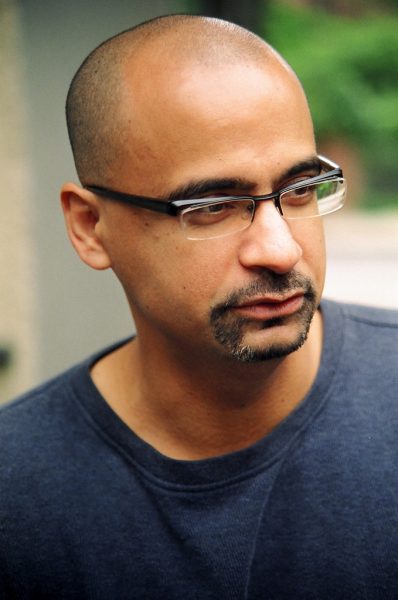Because we got a late start for Hispanic Heritage Month, (it actually started September 15), we are going to spend this whole week, the final week of this particular celebration, featuring Hispanic authors, scholars, educators, and speakers. Next week we’ll get back to celebrating LGBT and Philipino American History.
~by Michaela Hayes
About a week ago, a friend and I decided to spend our Saturday poking around Indigo Rose Books in old town. I enjoy poking around any bookstore, but I particularly love Indigo Rose Books. It is the perfect size, the books are piled high in all directions, and the entrance is at the top of an unnecessarily long set of old creaky stairs. What I enjoy most about the store though is the older gentleman who owns it. I have not gotten his name yet, but every time I visit I wind up in a long conversation with him about a different book. He seems to have read them all.
On this particular Saturday, I picked up The Brief Wondrous Life of Oscar Wao by Junot Díaz. This novel caught my interest because I had just read a few short stories from his collection Drown and found them to be extraordinarily alluring. The man noticed my choice and asked me if I had read it, which I suspect was just a polite introduction to him telling me his own opinion on the book. I didn’t mind. I told him no and waited patiently. He told me quite simply that he believes the book will one day become a classic. High praise.
Junot Díaz immigrated from the Dominican Republic to New Jersey when he was six. He is now 48 and working as a creative writing teacher at MIT, as well as a fiction editor at Boston Review, but like many other great writers his road to the top was not easy. He worked his way through college (Rutgers and then Cornell) delivering pool tables, as a dishwasher, and at a steel mill.
Díaz began writing his first major published work Drown while working towards his MFA at Cornell. It was published in 1996, and his next book (Oscar Wao) wasn’t published until 2007. This is How You Lose Her, another short story collection, was released in 2012. It has been rumored that he is working on a second novel. We imagine he is awfully busy.
Díaz’s writing often centers around the struggles of growing up as a Dominican immigrant. Díaz also manifests this concern outside of the literary world, as evidenced by his widespread activism. He is a member of Pro-Libertad, the Communist Dominican Workers’ Party, and has called for immigration reform in both the United States and the Dominican Republic.
Díaz works more slowly than other authors we have featured recently, but we trust he has something good coming. Until then, several of his short stories are available for free online for anyone who is interested: http://www.openculture.com/2015/02/seven-stories-from-junot-diaz-free-online-in-text-and-audio.html
